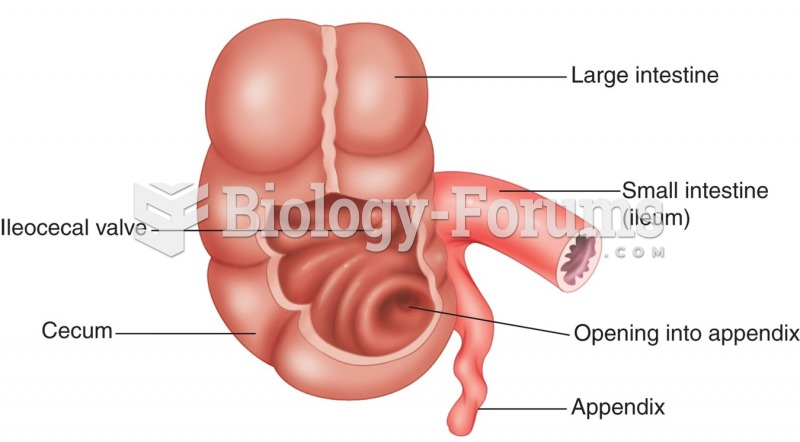|
|
|
Sildenafil (Viagra®) has two actions that may be of consequence in patients with heart disease. It can lower the blood pressure, and it can interact with nitrates. It should never be used in patients who are taking nitrates.
Opium has influenced much of the world's most popular literature. The following authors were all opium users, of varying degrees: Lewis Carroll, Charles, Dickens, Arthur Conan Doyle, and Oscar Wilde.
More than 30% of American adults, and about 12% of children utilize health care approaches that were developed outside of conventional medicine.
Signs and symptoms that may signify an eye tumor include general blurred vision, bulging eye(s), double vision, a sensation of a foreign body in the eye(s), iris defects, limited ability to move the eyelid(s), limited ability to move the eye(s), pain or discomfort in or around the eyes or eyelids, red or pink eyes, white or cloud spots on the eye(s), colored spots on the eyelid(s), swelling around the eyes, swollen eyelid(s), and general vision loss.
Vaccines prevent between 2.5 and 4 million deaths every year.
 Bayliss and Starling discovered the mechanism by which the small intestine and pancreas work togethe
Bayliss and Starling discovered the mechanism by which the small intestine and pancreas work togethe
 Volvulus. A length of small intestine has twisted around itself, cutting off blood circulation to th
Volvulus. A length of small intestine has twisted around itself, cutting off blood circulation to th
 Transurethral resection of the prostate (TURP). As a treatment for BPH, part of the prostate gland i
Transurethral resection of the prostate (TURP). As a treatment for BPH, part of the prostate gland i




